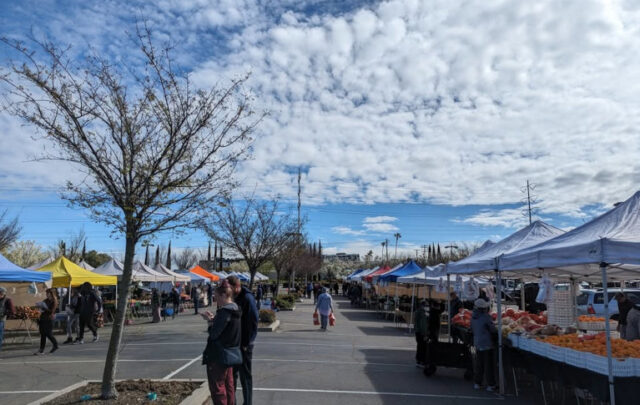Strength in numbers! More than 3,600 farmers strong gathered for the Midwest Organic and Sustainable Education Service (MOSES) conference in La Crosse, Wisconsin the last weekend in February, and it was an amazing experience. The conference featured keynotes by food policy expert Margaret Krome and Food Corps director Curt Ellis, a cornucopia of training opportunities focused on all aspects of organic farming, and a special “Young Organic Stewards” track for newcomers and beginning farmers with specialized workshops and social events.
I had the pleasure of attending the full-range of the Young Organic Steward workshops at the Conference and all of them were extremely helpful and targeted to expanding the know-how of those beginning a farming career. “Show Me the Money,” “How Much for Just One Egg?” “Farm Town in Real Life: Deciding What to Grow,” and “Social Media: Sharing Your Farm Story” ran the gamut from perspectives on marketing and business, to promotion and product planning. At this conference, MOSES mixed great technical and practical information, many opportunities for networking, and lots of fun – film nights for beginning farmers, a farm poetry jam, milking contests, and family-friendly games and activities.
A very inspiring part of the conference was a keynote speech by Curt Ellis, co-founder of Food Corps and one of the creators of the documentary King Corn. Ellis said that the idea behind Food Corps was to develop a crop of new, eager farmers and a place where a meeting of the minds and hands would take place. Food Corps aims to link county extension offices, non-profits, and schools, piloting a program where the schoolyard is the frontline of anti-obesity efforts. What kids eat in school and the food culture we give them affects how they learn, how they grow up, and the lives they lead, Ellis said.
Ellis also mentioned that engagement with food is vital for kids. A key piece of growing up with good food is the tactile connection. This is why Food Corps develops school gardens to get kids connected to the land. With parents and teachers involved in their schools, working side by side, students see the importance of learning through experience and by doing things themselves.
Involving kids in the food system is also about providing access to food. Kids who are part of the Food Corps programs eat food they’ve studied and grown, and in their school cafeterias, local food is celebrated and served. This is not work where there is a quick turnaround; instead, it’s slow, careful work that Food Corps is approaching in small steps through the programs in the states where they are based.
Ellis said that work to positively impact our food system is full of embedded solutions that may hold the promise of lifelong careers and solutions for local economies. New jobs, energy independence, and life for our cities and towns are outcomes of working for change in our communities. Food Corps has a five-year plan to work in a particular school, develop student teams and leadership, build supply chains, help students prioritize food and help transform the communities where volunteers are located around the values of good food and building the local community.
Food Corps, said Ellis, is one step toward encouraging more young people to become farmers. “According to the Secretary of Agriculture, we need 100,000 new farmers as land transitions from farmers who are getting ready to retire, and Food Corps is a possible trajectory for farmers of all stripes,” said Ellis. Quoting Wendell Berry, Ellis ended on a note of hope by stating that one of the most important ways to develop a solution to a problem is to create solutions that are actual solutions, where we solve for a pattern and more solutions evolve from that. Encouraging more young people to be involved in farming is such a solution, he said.
More information about Food Corps and applying to the program is available here.






